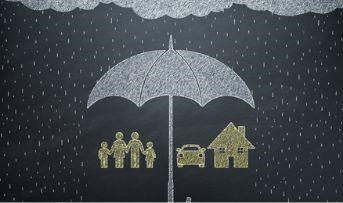General Insurance Blogs, Articles & Updates by - Magma Insurance
Have us call you
- RENEW YOUR POLICY
- BUY NEW POLICY

Eight best tips to help you pass your driving test
A driving test can be one of the biggest challenges for many. The exam can elevate multiple emotions and increase your stress about the final results. However, getting your driver’s licence and getting out on the road is a joyful feeling.
To help you pass the test with ease, here are a few tips that will come in handy.
1. Stay calm and do not panic:
It is normal to feel anxious and worried about the driving test. There are high chances of messing up when you are stressed. Therefore, avoid panicking during the exam and plan out your approach with a calm mind.
2. Get experience:
Practice and experience are two essential elements of passing the test. And both these elements complement each other. Without proper practice, you won’t be able to gain the experience that you might need. Get to know all the rules and regulations, and have an experienced driver to guide you on the dos and don’ts of driving.
3. Take the car that is familiar to you:
One of the critical tips to pass the driving test is to take your car with you. An unfamiliar vehicle can make giving the exam challenging. For example, if it rains, you will be comfortable handling your car’s controls rather than searching for the controls in a vehicle that is new to you. Another benefit of taking your car is that you will be familiar with the car’s judgment, and the test will go easier.
4. Use both hands for steering the wheel:
For a positive result and better judgment, use both your hands to get the grip of your steering wheel. Using only one hand may create difficulties in driving, resulting in a failed driving test.
5. Learn to drive in different conditions:
Weather is unpredictable. Hence, you must learn how to drive in different weather conditions, so you are always prepared in case of any sudden weather changes. Furthermore, practising driving in various weather conditions will help you be on the safer side.
6. Keep your basics right:
It is common for people to forget the basics while they are tense. Due to nervousness, standard rules such as checking mirrors can slip from the mind. Avoid making common mistakes like not checking the surroundings, lack of focus while reverse parking, and more. Keeping your basics right will help ease the burden and ensure a favourable outcome from your driving exam.
7. Do not hesitate to ask questions to the examiner:
Often, people feel scared to ask questions to the examiner in a fear that they will sound stupid or what the examiner might think. If you are unclear about what the examiner asked you to perform, do not hesitate to ask them to repeat what they said. Open communication is the key to passing your driving test without messing up.
8. Arrive at least 30 minutes before the given time:
Do not panic and rush to the location at the last hour. Doing so will create unnecessary stress and put you in a panic mode, affecting your driving exam. Therefore, get there 30 minutes before the scheduled test to get an idea about the surroundings.
Driving tests can be cleared quickly with a calm mind and following the tips mentioned above. Once you pass the tests, ensure that you follow all the traffic rules. Always carry essential documents with you, such as your driving licence, PUC, online car insurance details, so that you will be all clear even if the traffic police stops and question you.
Click HERE to know more about online car insurance plans best suited for your car.
Disclaimer: The information provided above is for illustrative purposes only. To get more details, please refer to policy wordings and prospectus before purchasing a policy.

Here's how you can fix the chain slipping problem in your bike
The chain on the motorcycle is one of the essential parts that helps its swift motion. A loose or malfunctioning chain would restrict the vehicle's movement. Regular maintenance and oiling are a few ways to ensure that the chain on your bike is working correctly. However, even after proper upkeep, we often encounter situations when the chain is loose. One of the main reasons for loose chains is untightened bolts. Other reasons can be a worn-down chain, mismatched teeth alignment, or the wrong sized chain.
Loose chains can have hazardous consequences. You can lose control of your bike, which can be threatening, especially on a busy road. Chain breakage can hurt the biker's leg and cause injuries. It can also get caught between the wheels and cause an abrupt stop, leading to the bike toppling over.
In this article, we will discuss a few ways to avoid the constant slipping of the chains.
1. Fixing new chains:
Brand new chains tend to stretch a little. The interlinking joints wear into each other gradually. It is advisable to ride at least fifty kilometres to loosen up the new chain a bit. Since the quality of chains can vary depending on the company and the metal, riding for long distances allows the new chain to adjust and get to the optimum stretch. Once you feel like the chains have loosened up a little, you can tighten them. After this initial step, you would not need to worry about the chains for some time.
2. Tightening the bolts:
Sometimes the bolts are not tight enough or become loose over time. Talk to a mechanic and understand how much the bolts need to be tightened to keep the chain in place and prevent it from slipping away.
If you are someone who goes off-roading and manoeuvers through treacherous tracks, then this tip might be helpful to you. The constant jerks and tension that your bike goes through can also lead to the loosening of the bolts. Using a lock nut can help prevent these bolts from loosening.
3. Replacing the sprockets:
If you notice that the teeth on your chains have been worn down, you must replace them. Even if only one tooth has been affected, it can cause damage to the others as well. So timely replacement of the sprockets is vital to ensure that your chain lasts longer.
4. Changing the chain:
Over time the chains experience considerable wear and tear and can have almost no functionality. This will require you to make changes and alterations to the chain constantly. If you face this problem frequently, it is high time to consider changing the chain altogether.
These are a few ways to ensure your chain is working correctly. Chain lubrication is another way to ensure your chain lasts longer and remains intact in its position. A well-functioning chain is vital to the overall health of the bike.
Worn-out chains can cause severe accidents and be dangerous for yourself and others on the road. Broken chains can impact your bike's performance. To safeguard yourself against repair expenses, you must look into bike insurance online. With the ease of technology, now you can browse through multiple options and make hassle-free investments in the best bike insurance that satisfies your requirements. By buying bike insurance online, you get an additional advantage of instant service and a reasonable premium by eliminating intermediaries.
Click HERE to check out bike insurance online.
Disclaimer: The information provided above is for illustrative purposes only. To get more details, please refer to policy wordings and prospectus before purchasing a policy.

These are a few common drainage problems harmful to your house
Most households should foresee drainage issues. We can only hope that the drains in our homes are in good condition because they are out of our sight. But several early indicators alert us to a drainage issue. If left unattended, these drainage concerns put people at risk and give rise to crises like safety, health, and financial problems when dealing with poor drainage conditions.
Seven typical drainage issues have been discovered to guarantee a flawless drainage system by sorting these issues:
1. Even with safety precautions, a clog in the drain system is unavoidable, and people flush many things down into the drain. Although it might begin as a slow-moving drain, it could eventually worsen and end up blocked. It is crucial to try an at-home fix for a blockage as soon as it gets noticed.
2. The installation, regular cleaning, and maintenance of gutters and downspouts are essential for the exteriors of dwellings. Numerous issues have arisen when several people take responsibility for their work independently. Both insufficient pipe installation and a lack of plumbing experience are the leading causes. If pipes aren't put in the right way, they can cause plumbing issues, broken tubes, and other property damage, along with the improper passage of sewage.
3. Drain pipes are subjected to a lot of wear and tear, resulting in fractures or cracks that cause the pipes to have open joints. Water leaks from these cracks could result in serious issues in the neighbourhood and even structural damage. Another indication of leaks and an excess of moisture is the development of mould. Pest infestations that enter through pipeline cracks are another issue about pipe breaking and leakage. Fortunately, one can easily fix these problems with prompt diagnosis.
4. With the right slope, water will flow away from the house. It has a big effect on the slope of the land so that the drainage moves away from buildings, especially in places that need to be paved, like parking lots and driveways. Sometimes, the builder might get this wrong and let water seep in or get stuck in the structure, damaging the walls.
5. The growth of plants can be dangerous to plumbing. In the trenches built around pipes and drains, tree roots can obstruct or destroy pipework as they develop and spread. They can enter the drainage system through openings, mainly already-damaged joints. They usually leave a mess of odours and have significant health risks.
6. Heavy rain or storms and the debris they leave behind can cause clogs, floods, or overflows in the drainage system if not appropriately covered.
7. Flooding can put pressure on pipes and can damage the ground. An inadequate drainage system or pipes is another sign of outdoor flooding.
8. Assume your house is next door to your neighbour's. Even if you take all the proper steps, there is still a chance that water from your neighbours' properties will cause damage to your property. It can occur because of a flood on their land or simply because your property is lower than theirs. To prevent water runoff from the neighbours, you must take the appropriate actions and ask for effective waterproofing of the floor.
These problems show how important it is to keep up with drainage system maintenance to avoid extreme issues. Even though most drainage problems aren't evident at first glance, the above points will help you figure out what's wrong and how to fix it.
Conduct periodic inspections of your house's drainage system and look for damages in the pipes, sinks, or ducts. Immediately call the experts to fix it before the issue becomes severe. Ensure regular cleaning of the drains to avoid clogging and unwanted growth of plants. To deal with other problems related to the well-being of your home, like protection from damages to belongings due to natural calamities and other issues like riots, invest in a reliable home insurance India policy. This will provide you with optimum coverage for your home financial support by compensating for the damages caused.
Click HERE to buy home insurance India.
Disclaimer: The information provided above is for illustrative purposes only. To get more details, please refer to policy wordings and prospectus before purchasing a policy.

Smart tips for washing home glass windows with sparkling shine
Have you ever tried running your hand over your house's glass window panes? The amount of dust you will come across is worrisome. We all are familiar with the saying "cleanliness is next to godliness," but at this point, it is not just about keeping your house clean. It is also about your and your family's health. The dust that settles on furniture, doors, and windows surfaces enters your body when you inhale while just being around your house and going about your everyday chores.
Many times, we rush to the doctor with a common cold or some health issue which is related to the hygiene problems arising from the dust and dirt which have made their way into our home, costing us several trips to the emergency room, medicine dosages, or having a troubled sleep at night.
But how can you combat this problem? Don't worry. This blog will discuss smart tips for washing home glass windows with sparkling shine, which would help you eliminate the tiniest speck of dust, leaving the glass panels squeaky clean!
1. Notice the frame:
If you closely examine a window, you will be shocked by the amount of dust, spider webs, etc., settled on the frame of the glass. The first step to cleaning your windows would be to clean the frame so that the dust particles do not float in the air and find their way to any other surface. You can use a microfibre towel to clean the dust and a sparkling shine solution to wipe off the frame after dusting.
2. How about a mop:
The windows can be large and high, which might not be accessible to clean using a small microfibre towel. A mop with a stretchable handle is the best idea in this scenario. You can dip the mop in a solution, wring it and then wipe the glass windows by stretching the handle to the required length. Ensure that the mop reaches all the corners of the windows, thus giving them the sparkling shine!
3. A small wiper is an intelligent option:
Doubling up on cleaning supplies has never gone to waste. Apart from using a microfibre towel and a mop, you can also use a small wiper which would help you wipe off the cleaning liquid so that it doesn't leave a stain on the window. Keeping a wiper will help you clean the window's exterior glass panel, thus eliminating pollen or bird waste, etc.
4. Rain can be difficult for the windows:
It is advised to clean the windows from the inside and the outside three to four times a year. The most favourable time to clean your windows is during spring and autumn. Cleaning your windows during these seasons helps eliminate any complicated to-clean mineral deposits that might have been set due to the rains.
5. Cleaning directions are a huge bonus:
Spraying some cleaning liquid and using a microfibre towel to wipe the windows can have magnified effects if you clean the window in a circular motion and jazz it up by swiping horizontally and vertically to avoid setting off any liquid stains or dirt.
Other tips include using tongs when cleaning window panes and blinds, using a lint roller on the window screens to remove the lint that might have found its way, cleaning/vacuuming the curtains, etc.
These were a few smart tips for washing home glass windows with sparkling shine. Keeping your house clean and hygienic is very important. Home is not just a place to live; it is an emotion. It houses millions of memories and fosters relationships, so you must get home insurance to protect this sacred space against any unforeseeable mishaps and situations. You can look for the benefits of the various home insurance options which are available in the market and purchase the one which suits your needs.
Click HERE to learn more about buying home insurance.
Disclaimer: The information provided above is for illustrative purposes only. To get more details, please refer to policy wordings and prospectus before purchasing a policy.

Tech may not be the best solution to expand the Indian policyholder base
Even though the Indian insurance market has been expanding quickly in recent years, just about 3% of Indians currently have life insurance. Increasing the base of policyholders is essential to ensure that more people are sheltered from financial shocks. Although technology has been suggested as the answer to this issue, it may not be the most effective strategy to increase the number of Indian policyholders. This blog will discuss how tech may not be the best solution to expand the Indian policyholder base. So, without any further delay, let's get started.
1. Accessibility is still an issue:
As it is frequently out of range for significant portions of the population, technology may not be the most incredible way to increase the number of Indian policyholders. Despite India's tremendous internet expansion, many residents of rural areas still need access to smartphones and the internet.
The most successful way to communicate with these people is still through conventional media like newspapers, radio, and television. There is a substantial digital divide between tech adepts and those who are not. For instance, older individuals may need help navigating online insurance platforms, and individuals who do not speak English well may need help understanding the language used in many online insurance policies.
2. Price is one of the primary reasons:
Technology can be expensive to develop and maintain, which is another reason why there might be better ways to increase the number of policyholders. For smaller insurance companies, it might be too expensive to spend on technology, software development, and cybersecurity to build and manage online insurance platforms.
Insurance companies might also need to engage specialised personnel to operate the platforms, raising expenses even more. When costs like these are eventually passed on to customers through higher premiums, insurance becomes less affordable and less available to those who need it.
3. Lack of trust and belief in the insurance providers:
Additionally, there may be better uses of technology than fostering public confidence in insurance. Many individuals in India continue to be cautious of insurance companies and doubt their motives. This distrust is frequently based on prior instances where insurance companies have allegedly broken their commitments or failed to live up to their pledges. Personal interactions, open communication, and moral conduct are necessary for fostering trust and confidence in the insurance industry. Technology can undoubtedly make some of these encounters easier, but it cannot replace the value of human interaction, especially when fostering trust.
4. Absence of proper awareness and information:
Since technology tends to overlook the significance of insurance education, there might be better answers. Educating the public about the advantages and importance of life insurance is essential to increase the number of policyholders. Understanding the many insurance policy types, the coverage they provide, and how to pick the one that best suits their needs can all be achieved with insurance education.
The value of in-person interactions with trained insurance agents who can answer questions, offer guidance and help people choose the best policy cannot be replaced by technology, even though it can help deliver this education through online tutorials, webinars, and other digital resources.
What could be some probable solutions to this issue?
Policymakers may concentrate on enhancing life insurance education and awareness initiatives, particularly in rural areas. Offering financial incentives to those who buy insurance policies, including tax savings, may encourage people to enrol in insurance. Insurance companies may also consider partnering with banks, post offices, or non-governmental groups to reach a larger audience as an additional distribution channel.
We hope this blog provides insights into this issue and how insurance companies can grow their consumer base. While we are on the topic, it only seems like a brilliant idea to talk about how you need to get insurance from the best general insurance company which caters to its customers' needs optimally and is available 24*7 to assist them with their queries, therefore, helping them arrive at a decision.
Click HERE to learn more about how you can choose the best general insurance company for your needs.
Disclaimer: The information provided above is for illustrative purposes only. To get more details, please refer to policy wordings and prospectus before purchasing a policy.

Taking insurance on your education loan may help you financially secure yourself
Higher education costs increase yearly, and many students turn to education loans to fund their studies. While a student loan can be a great option to finance your education, it can also be a significant financial burden after graduation. That is why it is crucial to consider taking out insurance on your education loan.
General insurance plans can offer you financial security in case of unexpected events that may cause you to default on the repayment of your education loan. Let's examine the benefits of taking out insurance on your education loan.
1. Financial protection for unforeseen events with education loan insurance:
Firstly, it provides financial protection to you and your family in case of an unexpected event such as job loss or a medical emergency. Suppose you cannot repay your education loan due to unforeseen circumstances. In that case, the burden of repayment falls upon the co-applicants. If you purchase insurance coverage, your insurer will ensure that your loan payments are taken care of, providing much-needed relief to you and your family during difficult times.
2. Improving credit scores with education loan insurance:
Insurance on your education loan may also improve your credit score. If you default on your education loan, it can adversely impact your credit score, making it more difficult for you to obtain credit in the future. By taking out insurance, you can avoid defaulting on your loan. This will help you maintain a good credit score and ensure that you are in a better position to obtain credit in the future.
3. Reduced burden of repayment:
Thirdly, insurance on your education loan can provide peace of mind. It can be stressful to think about the financial burden of repaying your education loan, especially if you are doubtful about your future income prospects. With insurance coverage, you can rest assured that your loan payments are taken care of. This will help you focus on your studies and career prospects without worrying about loan repayments.
4. Inbuilt insurance in education loans:
Insurance on your education loan may only sometimes be necessary. You can manage your loan repayments without insurance if you have a stable income and a good credit score. Additionally, some education loan providers may include insurance coverage as part of their loan package, so check with your loan provider before taking out a separate insurance policy.
Another critical factor to consider when buying insurance on your education loan is the type of insurance policy you choose. Various insurance policies are available, such as disability, unemployment insurance, etc.
5. Unemployment insurance for education loans:
Unemployment insurance can provide temporary financial assistance if you lose your job and cannot repay loans. It guarantees repayment of the loan amount without letting it reflect as a default. It also allows you to focus on finding stability and a consistent source of income rather than worry over the possibility of defaulting payments.
In conclusion, general insurance plans on your education loan can provide valuable financial protection and peace of mind. Similar to purchasing other general insurance plans, assessing your individual needs and circumstances is essential when choosing an insurance policy for your education loan. Carefully review the terms and conditions of the policy, and compare policies to ensure that you are getting the best value for your money.
Purchasing general insurance plans for your student loan is not necessary and only mandatory when applying for institutions abroad. It can be a valuable tool for all those who want to protect themselves and their families from unexpected events that may affect their ability to repay their education loans.
Click HERE to buy different general insurance plans online.
Disclaimer: The information provided above is for illustrative purposes only. To get more details, please refer to policy wordings and prospectus before purchasing a policy.

Considering installing a solar panel rooftop? Here’s all you need to know
When switching to a sustainable energy source like solar, it is wise to conduct a careful study because this is an expensive purchase you will have to live with for 25 years. In this post, we will provide essential questions so you can learn everything you need to know before installing solar panels on your home. These solutions will simplify your solar journey.
1. How much can solar power reduce your household electricity costs?
The monthly savings from solar for household electricity users can be as much as 80%, and in certain circumstances, even more. Before ordering a solar system, determine how much money you will save.
2. Can you utilise net metering at your house? When should you apply if the answer is yes?
Savings from solar can be maximised using a net metering feature in conjunction with an on-grid or hybrid solar system. In exchange for payment, you can export the extra electricity your solar system produces to the grid.
Now, homeowners in all of India's states can use the facility. However, the advantages may vary based on the tariffs established by the individual states. Before and after your solar PV system installation, you can apply for net metering. Nonetheless, we advise you to apply for net metering before the system is installed for your convenience.
3. How much would it cost for your rooftop solar system?
Over the past ten years, solar system prices have decreased significantly. A typical 1 kilowatt (kW) solar system, which cost about INR 145 per watt (Wp) in 2000, is now available for about INR 35 per Wp. However, the final price varies according to the project's size, the skill level of the solar installer, and component quality.
Residential solar systems are often smaller than commercial or industrial ones, and because of the smaller scale of operations, the cost per KW tends to be more significant. The essential thing in this situation is not to hold back on the components' quality or the installer's knowledge.
4. When will your solar system reach financial stability?
With a properly installed household solar system, you should reach your breakeven point in about three and a half years. However, the system size and the state's DISCOM tariff rate affect the breakeven point. The critical thing to remember is that since solar energy returns come in the form of savings, they are guaranteed. You can use a solar calculator to determine your expected payback period and return on investment.
5. Is the rooftop of your house a suitable location for solar panel installation?
It is crucial to examine the capacity of your rooftop. Your rooftop needs to support the combined weight of the mounting structures and the panels. A rooftop must be free of any shadows cast by surrounding structures or objects because most homes in India are constructed too close to one another.
6. Are there any tax benefits for your residential solar investment?
Household electricity is not currently eligible for any tax incentives. However, the investment is worthwhile, though, because the savings on electricity bills alone are substantial.
After investing in such sophisticated technologies and energy sources, it becomes crucial to protect your home against any unforeseen contingencies. In such cases, the best home insurance in India can also assist you in significantly reducing your financial outlay by protecting your home, its structure, and content from unexpected loss or damages.
Click HERE to buy the best home insurance in India.
Disclaimer: The information provided above is for illustrative purposes only. To get more details, please refer to policy wordings and prospectus before purchasing a policy.

Material disclosures are key for a successful claim
Insurance policies can be tricky! You need to fully understand the policy terms & conditions before you sign the dotted lines. The government has set up many regulations to implement insurance rules in India efficiently.
Hence it becomes imperative to fill out the insurance policy papers yourself. If you do the formalities through an agent, you might face problems later. You need to know everything about the premium, risks, disclosures, etc. This can also cause the claim to be rejected in due time, which can be devastating, especially if you're in an emergency.
You should always be cautious about everything that you disclose to your insurer. This involves the disclosure of your materialistic goods, qualifications, medical history, income, bills, and so on. The more you disclose rightfully, the better. It is vital for all health and general insurance India. So, regardless of the insurance you're applying for, disclosure is essential.
Let's look at the things to disclose to your insurer while taking a policy or filling a claim, as they increase the chance of a successful claim.
1. Income:
It is one of the best things to be disclosed early on. Your income needs to be revealed whether you're employed permanently in a company or as a freelancer. The job designation, salary, and experience are also taken into consideration. The more experience one has, the greater their expertise. This also means that they are not eligible for hazardous work. All this contributes towards a successful claim.
2. Material possessions:
It is essential to disclose all the material assets that you have. From your house to your car, you need to declare them all. It also involves any land that you own. You should disclose anything materialistic as well as expensive at all times. Adding them later while raising a claim decreases your chance of getting a successful claim.
3. Occupation:
Your occupation directly correlates to occupational risk. It assesses the risk of accidents and even the wellness of an individual. The work done by the individuals is of prime importance. It helps in determining the claims as well. The risk assessment of a particular occupation also affects the premium paid by the individual for a health insurance policy.
4. Medical history:
Insurers give the medical history of the individual prime importance. It provides a brief insight into the history of illnesses an individual has suffered and the risk they bear. If it is more severe, the premium will go up significantly. Serious issues like heart disease, hypertension, and diabetes can increase the premium. They must be considered and disclosed to ensure you purchase the right policy with appropriate coverage that leads to successful claims in case of contingent events against which you are insured.
5. Family history:
This is an essential element that will determine the extent of the illnesses in individuals. If there are genetic disorders, it will also mean that the individual is at a greater risk of developing them. It can make the insurance company more cautious while assessing the individual's health or life insurance risk profile. Incorrect disclosure or misrepresentation of such facts leads to the rejection of claims.
You should reveal these critical elements to implement a successful claim. Material disclosures are of utmost importance as they determine the success of a claim. If not disclosed at the right time, they can cause problems later. You must follow these rules diligently while purchasing non-general and general insurance India. Good luck!
Click HERE to buy the best general insurance India.
Disclaimer: The information provided above is for illustrative purposes only. To get more details, please refer to policy wordings and prospectus before purchasing a policy.

